9 ways to avoid decision fatigue when planning a kitchen renovation - insider secrets to skip the stress and make the process more fun
Take the stress out of kitchen renovation decisions with our top tips
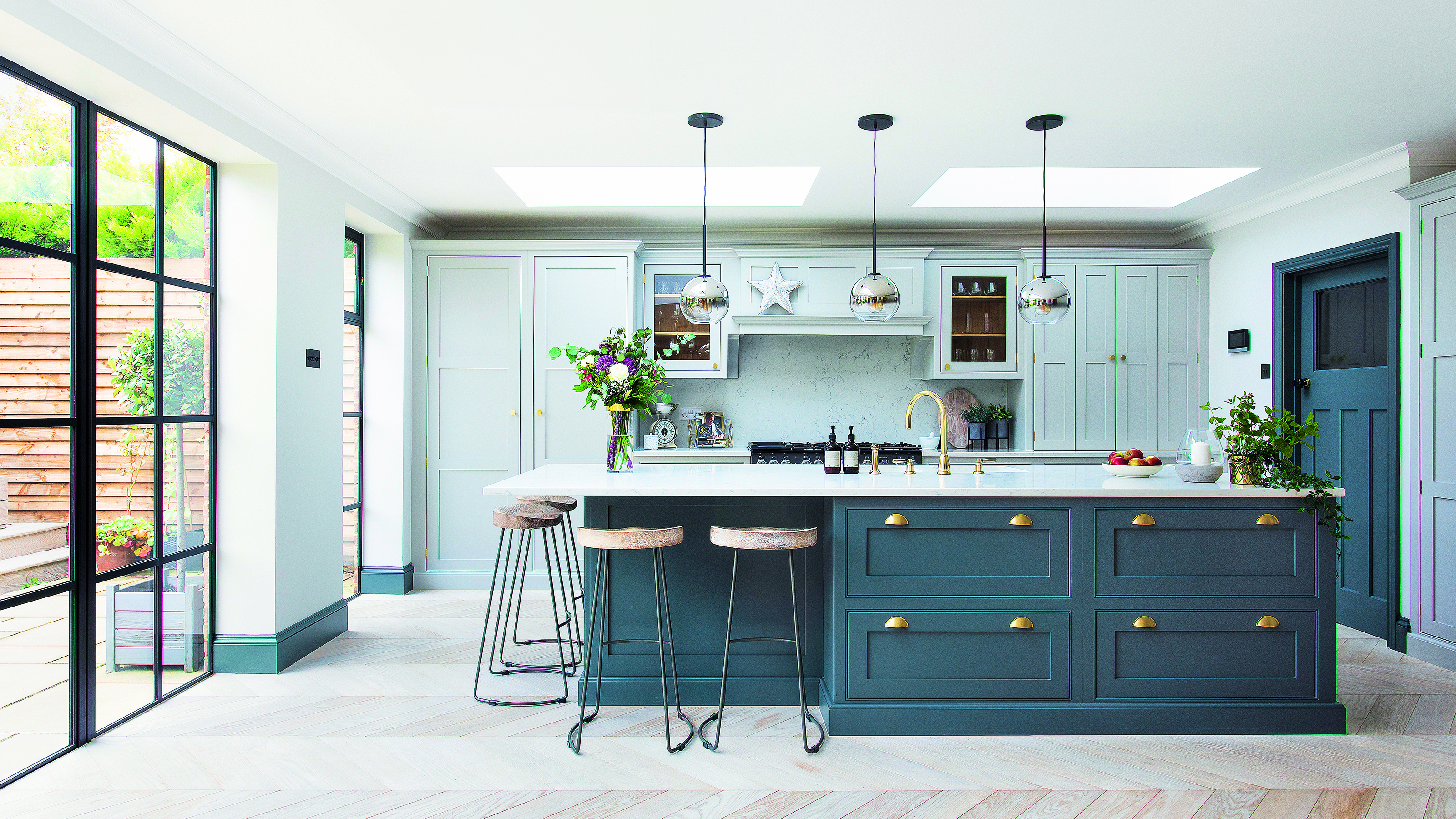

Renovating a kitchen is an exciting and rewarding project which should result in a space that meets all your expectations and makes living in your home all the more enjoyable.
That said, this kind of upgrade isn't without its hurdles. There are just so many elements that go into making a kitchen renovation a success, from the style of units you select and the best layout for the space, right down to the more detailed factors, such as how many switches and sockets to include and where to tile walls.
What all this means is that while you might well set out full of enthusiasm, making mood boards and visiting showrooms, you can soon find yourself burning out, feeling overwhelmed and tired of decision-making. This, in turn, often leads to rushed choices or forgetting to budget for everything that is needed to complete your dream space.
We reached out to some of the top design experts around to get their tips on how to avoid the dreaded 'decision fatigue' so you can sail through your project and come out the other side delighted with your new kitchen.
1. Make a list of priorites
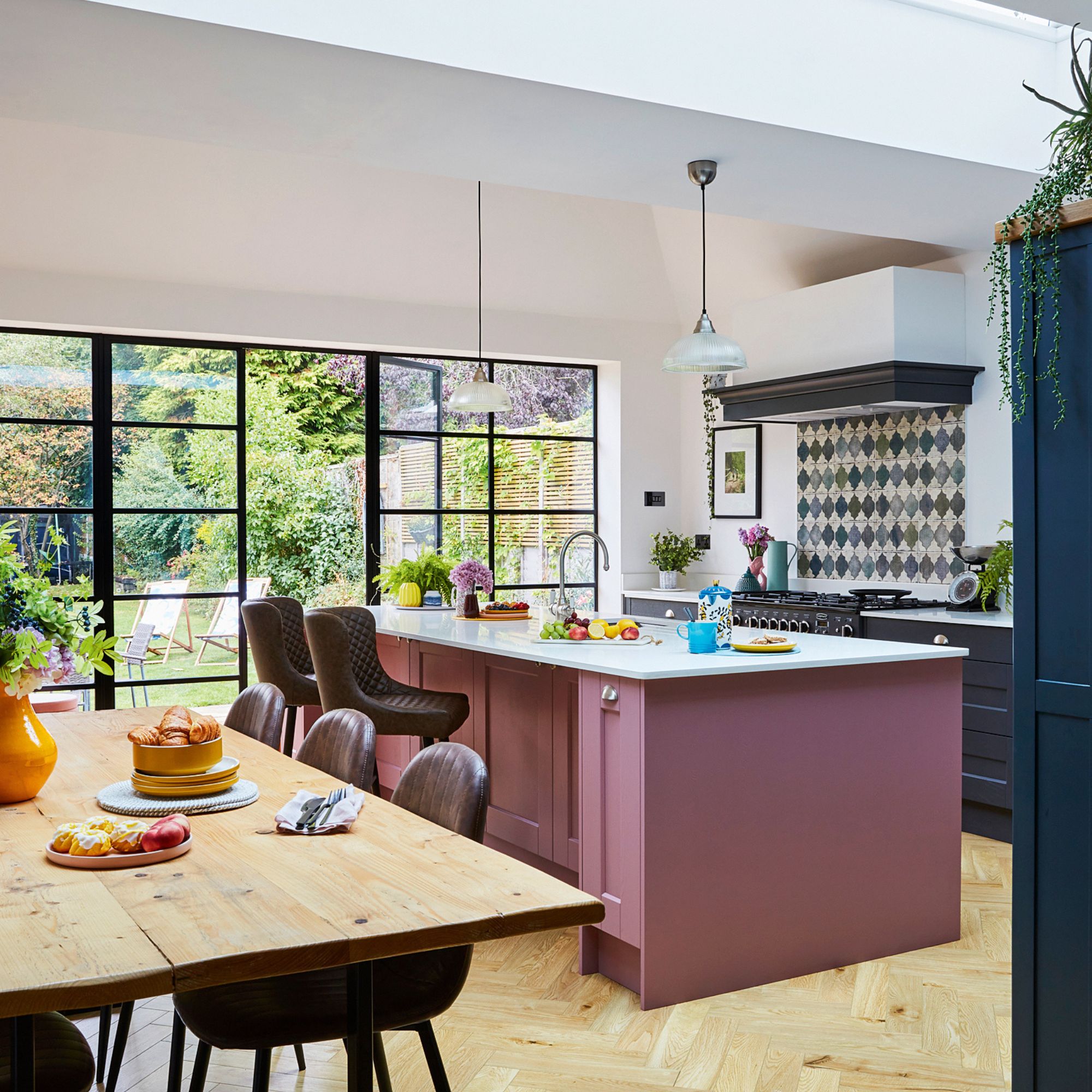
If you find yourself feeling overwhelmed before work has even begun on your new kitchen ideas, it can help to start with a wish list, noting down the non-negotiable items you want and need in your new space first.
'Start by setting clear priorities – decide what matters most to you, whether it’s functionality, aesthetics or budget,' suggests design-build specialist Elizabeth Vergara of Vergara Homes. 'Having a list of non-negotiables can help you filter through choices more easily.'
Greg Roth, Sr., interior designer at CarbonShack Design, has some more advice on how starting with the must-haves can help with subsequent decision-making.
'The secret to avoiding decision fatigue during a kitchen remodel is to start with one non-negotiable element that truly speaks to you – your 'North Star' piece – and let it guide all subsequent choices,' says Greg. 'This could be anything: a range cooker in marine blue, or even an inherited set of copper pots you want to display.
'Once you've identified your anchor piece, it naturally narrows down many other decisions, and can act as a guide for moving forward. That statement range in marine blue? Let it dictate your colour palette, hardware finishes and potentially even your design style,' continues Greg. Those copper pots? They could inspire a whole French country kitchen aesthetic. Using this method, each decision becomes a simple question: 'Does this choice complement my North Star piece?' If not, eliminate it and move on.'
2. Plan everything in advance
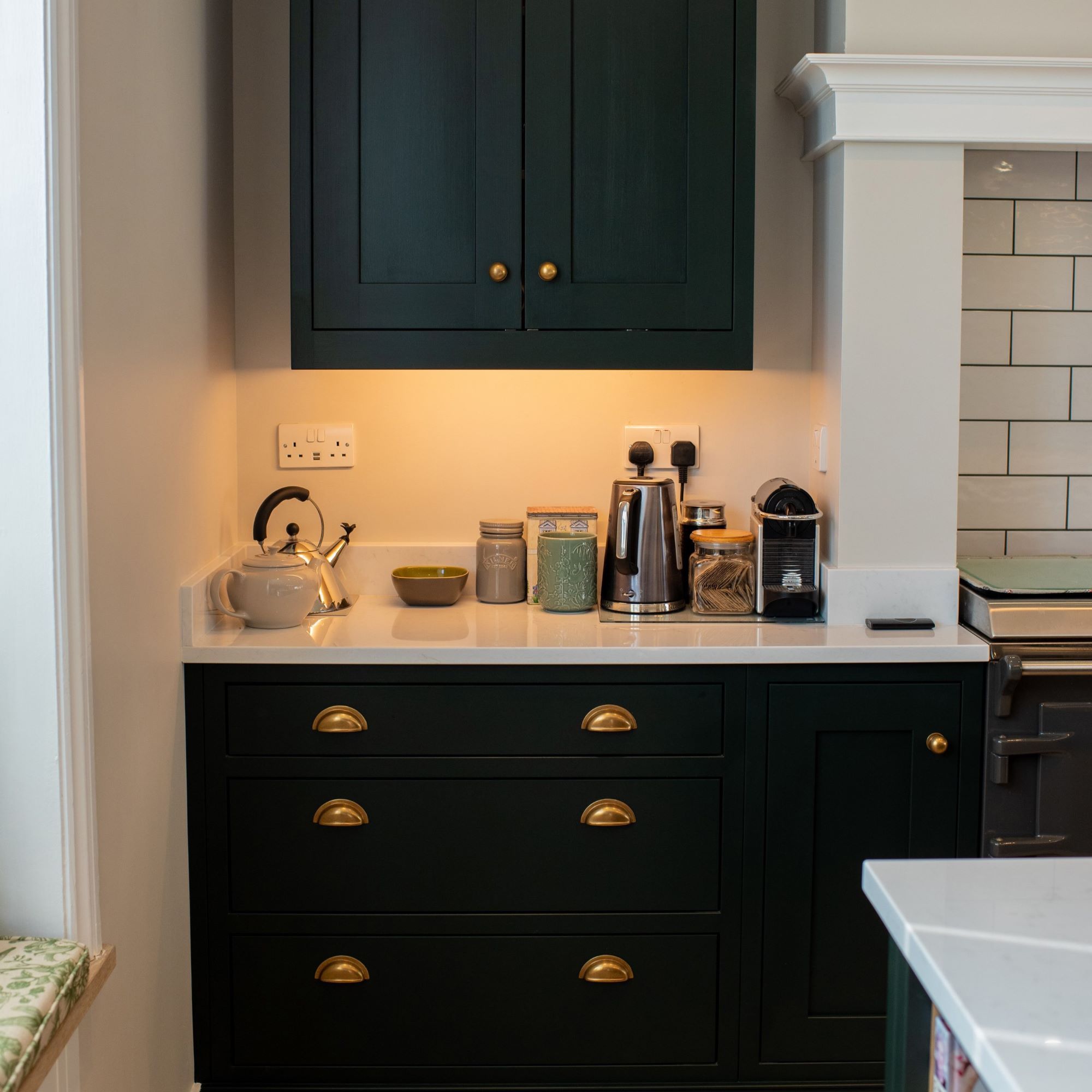
As with so many things in life, forward planning is key to the smooth and stress-free running of a kitchen renovation project – just as when planning a kitchen extension.
'We advise planning ahead by focusing on key design elements first – things like layout and functionality – so that the rest of the decisions flow more easily,' advises Karla Alvarado, the owner of HomeNovate.
According to Richard Keyes, head of design at Hobson's Choice, a crucial first step in planning is to reflect on your existing kitchen.
'Think about what works and what doesn’t,' says Richard. 'It’s easy to accept shortcomings as 'simply how it’s always been', but a renovation offers the perfect opportunity to address these pain points. Consciously considering what works and what doesn’t will help enormously as you start the design development journey.
'To avoid becoming overwhelmed, it’s important to plan all key decisions in advance,' continues Richard. 'Make decisions on kitchen design, lighting and electrical socket locations before work begins. This way, you can step back and let the process unfold smoothly.'
3. Be realistic with timescales
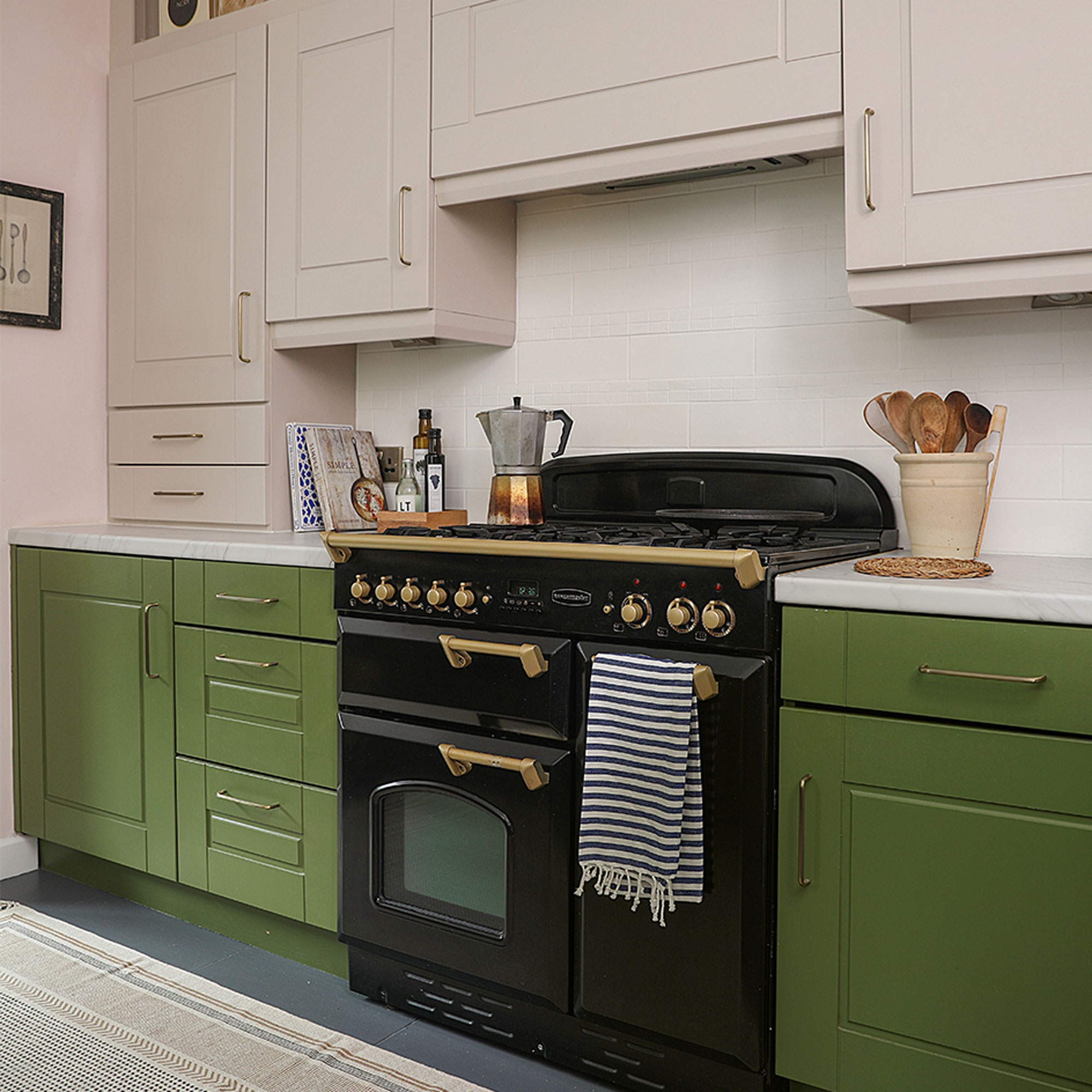
While it is understandable that you'll want your new kitchen to be up and running as soon as possible, setting unrealistic deadlines will only add to the stress of decision making. The classic 'we'll be in for Christmas' mentality is a good case in point here. Do look into how long does it take to fit a kitchen and also at lead times on materials and appliances.
'Rushing through the design process can lead to missed opportunities and heightened stress,' agrees Richard Keyes. 'It’s recommended to allow at least six months for the project – one to two months for design, 8–12 weeks for product lead times, and anywhere from 1–4 weeks for installation, depending on the scope of work.'
4. Make a moodboard
It might sound a little obvious, but starting out with a really detailed mood board can help so much when it comes to later decisions – plus it is actually quite fun once you know how to create a mood board.
'Create a mood board or gather inspiration to narrow down your style before diving into individual decisions,' suggests Elizabeth Vergara. 'This will give you a clear direction and make each step feel more manageable.'
If you are struggling to visualise your new kitchen, it can help to visit a few showrooms and pick up some samples to later add to your board.
'Pick a day, or an afternoon, and just wander around and get inspired,' says Teri Simone, head of design and marketing at Nieu Cabinet Doors. 'Some showrooms can be very sales-focused and pressured, so feel free to let the staff know you are simply having an inspo day, and you’ll be back later. I find that communicating clearly in stores will make you and the sales rep more at ease as you take your time to have a slow day of gathering inspiration and potential samples.'

Prefer a physical mood board to something like Pintrest? Get your hands on one such as this stylish grey felt version and get busy covering it with fabric samples, paint swatches and magazine cuttings to help develop a clearer idea for your kitchen design.
5. Prepare for disruption
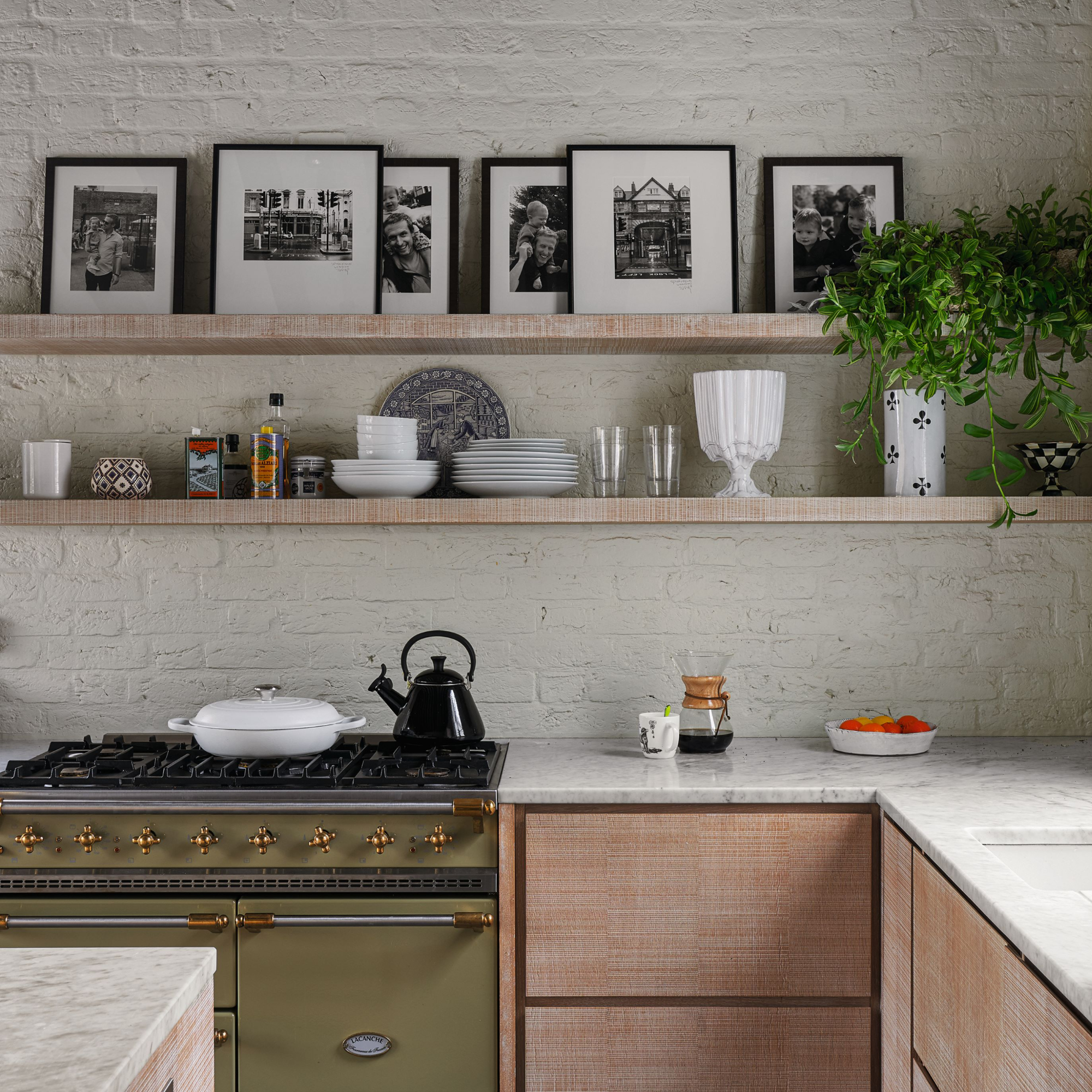
Any kitchen renovation comes with a level of disruption and it is not unusual for homeowners to find themselves without cooking facilities or a water supply at certain stages of the project.
This can be stressful and mean making important decisions is harder than ever. This is why it really does pay to have a plan in place to make life a little easier.
'Kitchen renovations inevitably bring noise, dust and a temporary loss of your primary cooking and cleaning space,' says Richard Keyes. 'One of the most practical steps is to set up an alternative cooking and cleaning station.'
'When it comes to minimising disruption, consider setting up a temporary kitchen in another part of the house with essentials like a microwave, kettle and mini-fridge,' advises Elizabeth Vergara.
If even temporary kitchen appliances don't help ease the stress of your project, it might be time to vacate for a while.
'For some homeowners, it might make sense to temporarily move out during the renovation – whether that’s taking a short holiday or staying with friends or family,' continues Richard. 'If you choose this option, a professional and reliable installation team will take care of your home while you’re away.'

You don't want to spend a fortune on any appliances for your temporary kitchen so this model is perfect. In addition to being affordable, it is also compact so won't take up too much space.
6. Have a schedule of works – and stick to it
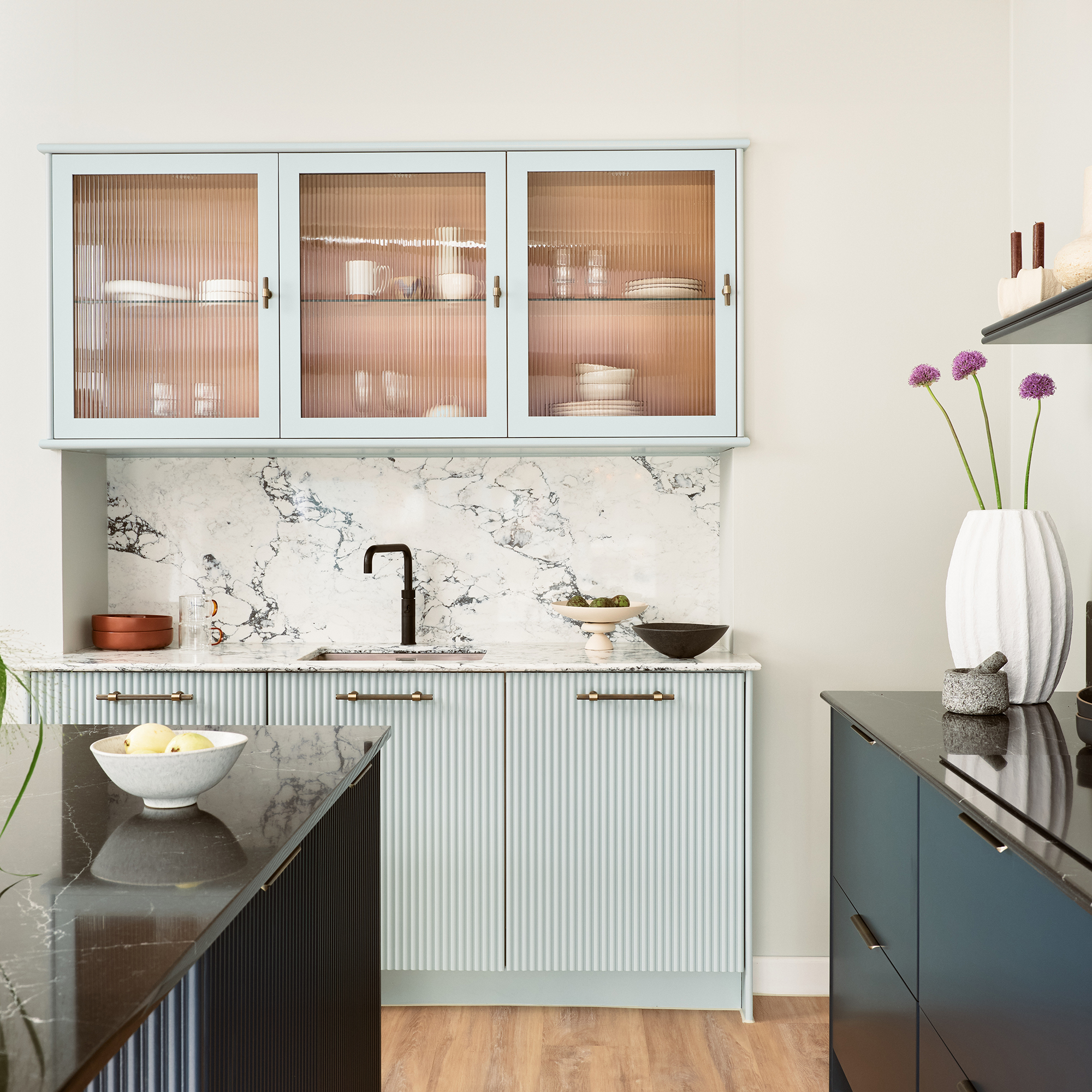
With so many decisions to be made it is not uncommon for people to start jumping around, from one job to the next, never quite finishing anything properly. This can make things feel quite chaotic and affect good decision-making.
'Start with your appliances. You can't plan a kitchen without knowing the size of the appliances you are going to use,' says Donna Wood. 'Once selected, design the kitchen for functionality and entertaining.'
'Once that’s done, the finishes can follow. Once the space is structurally visualised, choosing finishes becomes much easier, as there’s a clearer sense of what will complement the design,' advises Richard Keys.
'Start with the most obvious places for specific features and go from there,' says interior designer Victoria Holly of Victoria Holly Interiors on how to layout your kitchen. 'I recommend starting with the kitchen sink. If you have a window in the kitchen, this is a great location. In addition, if you have a larger wall, this is a great place to centre your cooker and create another focal point. From there, the rest of the layout can fall into place,' continues Victoria. 'Dishwasher next to sink, rubbish bin on the other side of the sink. Storage for pots and pans on either side of the cooker.'
7. Take breaks away from the project
You should never feel guilty about taking time away from your project – having some time out can leave you feel refreshed and ready to tackle decisions head on.
'If you feel the need for a break, consider planning a getaway during the messiest phases of construction (for example, demolition),' suggests Richard Keyes. 'This can offer a much-needed reset, just ensure you’re reachable by phone or email for urgent queries.'
Even a simple day trip away can make all the difference to how you feel about a project – just make sure your outing isn't to your local kitchen showroom where you'll be faced with an array of kitchen trends.
8. Enlist the help of the experts
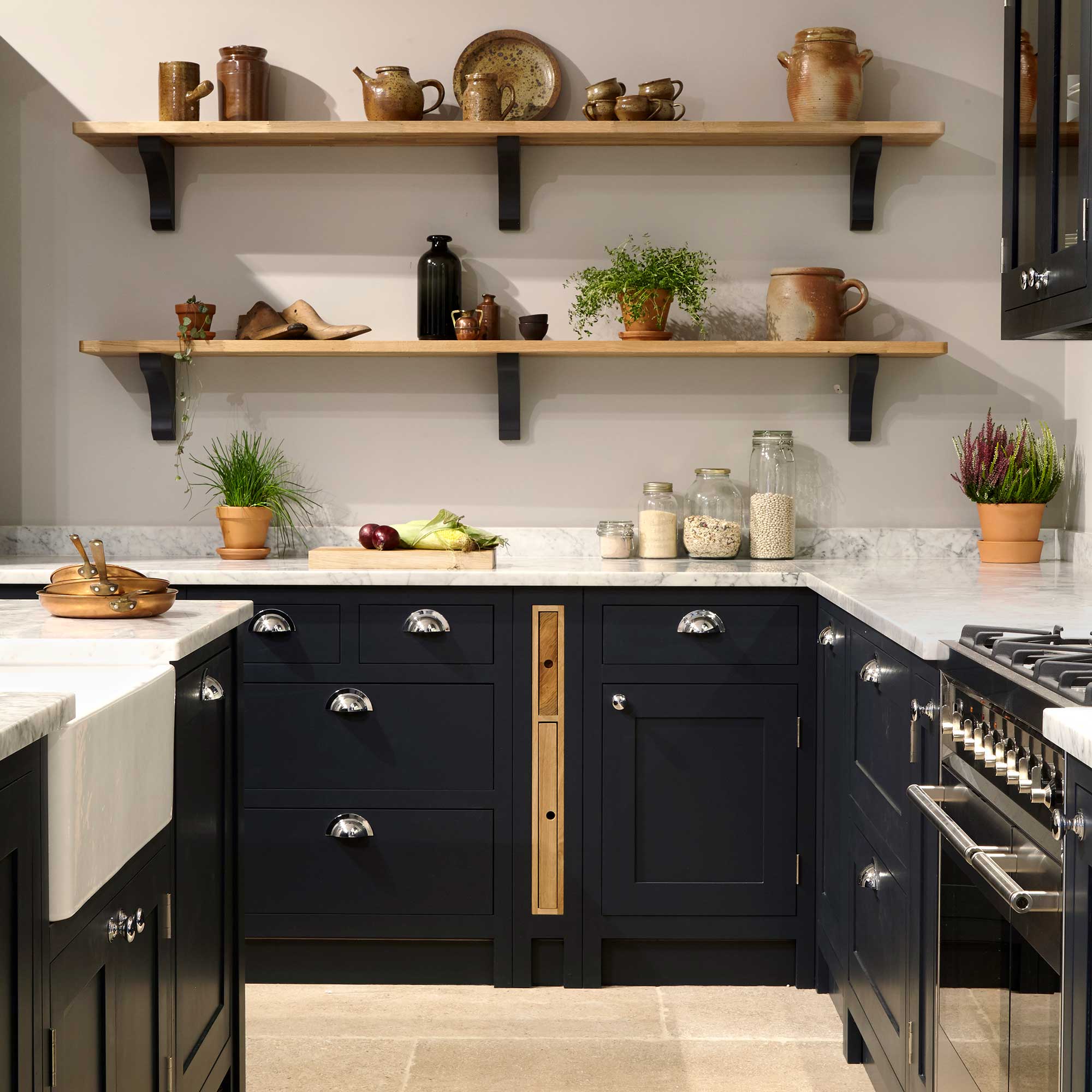
If this is your first kitchen renovation or you work full time and won't be able to sacrifice much time for designing, planning and fitting your new kitchen, calling in the help of the pros really will take some pressure off. Plus, in many cases, if you are ordering your new kitchen through them, their design services will be included in the price. This will leave you more time to think about your kitchen decor.
'It’s easy to feel overwhelmed when trying to balance priorities and aesthetic preferences within budget,' says Philip J Consalvo, principal at PJCArchitecture. 'This is where having the guidance of experts is especially helpful. Working with a design team will help narrow down options and inform choices tailored to how you envision using your space.'
9. Rope in your close friends to help
A kitchen renovation can really put the pressure on and it is not unknown for this type of project to end up being the source of some pretty heated household arguments – you think you know everything about how to design a kitchen and love the khaki units, but your partner wants to play it safe with white, for example...
'If the decision fatigue is real, make a day out of exploring with a friend or family member who has nothing to do with your renovation,' suggests Teri Simone. 'Not only can this help shake off the monotony of only talking about the reno with your partner, but it could also help with some fresh perspective.
'For example, your friend might say 'Why are you only looking at matt brass? You hate things that don’t look shiny and new.' Sometimes people around us can add valuable insight on what your true preferences are, especially if you’re being swayed by the pretty or newest trend in design.'
FAQs
How can you minimise kitchen renovation stress?
One of the best ways to cut down on the number of decisions you will need to make is to limit the number of people involved in the project. One way to do this is to hire a project manager who will organise all the separate trades and co-ordinate the ordering and delivery of materials. They can become your sole point of contact and also help you calculate how much does a new kitchen cost.
'A common renovation pitfall is trying to take on too much,' confirms Richard Keyes. 'It’s important to trust your design experts and installers to handle tasks like plumbing, electrical work and structural adjustments.
'While you may have a vision for the end result, the professionals ensure that the journey runs smoothly,' continues Richard. 'From the initial design phase to installation and managing tradespeople, leaving the heavy lifting to experts will save you time, reduce stress and help avoid costly mistakes.'
Whether you are dealing with small kitchen ideas or have grand plans for a great big family kitchen diner, good planning, delegation and the odd break away can all help minimise stress.
Get the Ideal Home Newsletter
Sign up to our newsletter for style and decor inspiration, house makeovers, project advice and more.

Natasha has been writing about everything homes and interiors related for over 20 years and, in that time, has covered absolutely everything, from knocking down walls and digging up old floors to the latest kitchen and bathroom trends. As well as carrying out the role of Associate Content Editor for Homebuilding & Renovating for many years, she has completely renovated several old houses of her own on a DIY basis.
You must confirm your public display name before commenting
Please logout and then login again, you will then be prompted to enter your display name.
-
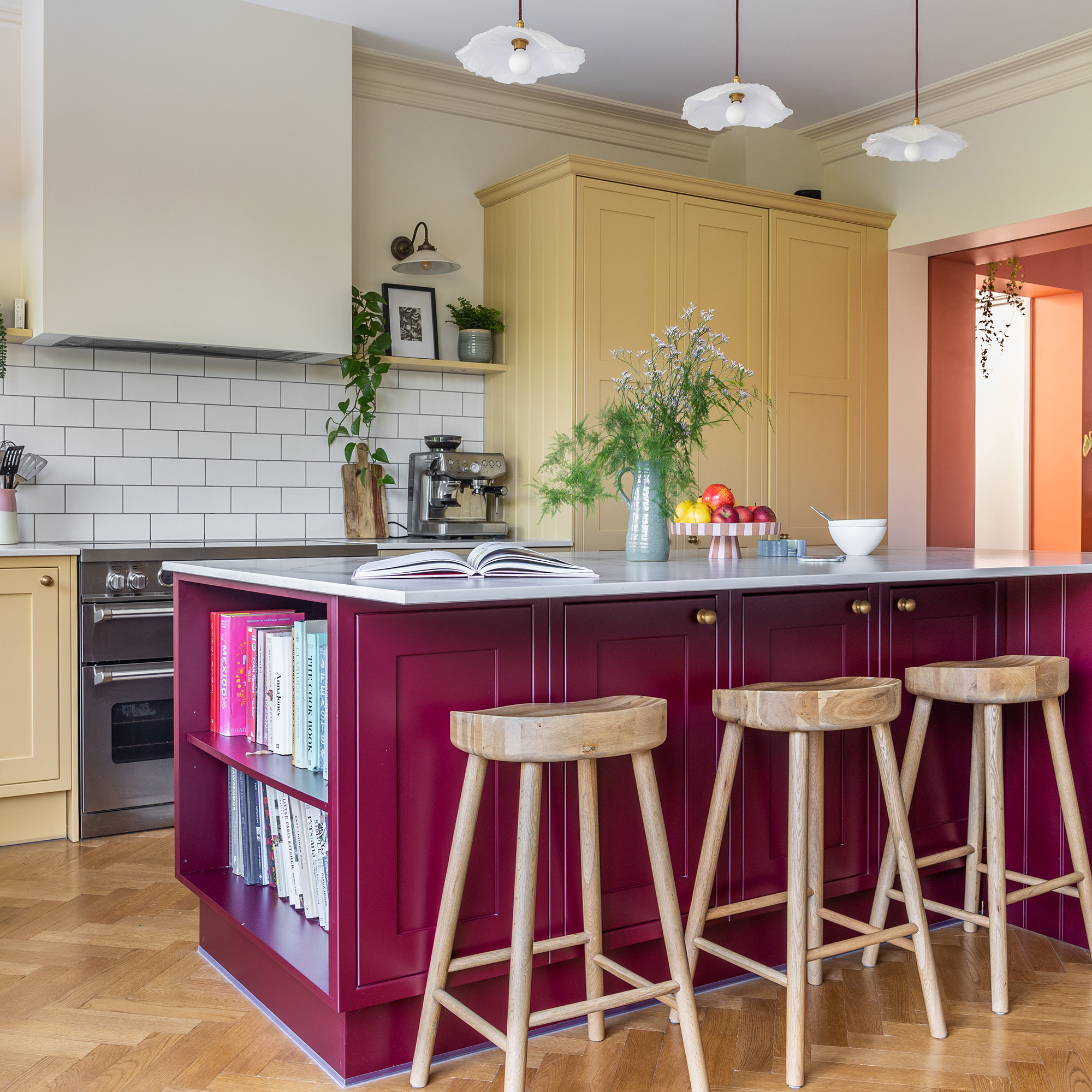 A top-to-bottom renovation has turned this Edwardian house into a lovely family home
A top-to-bottom renovation has turned this Edwardian house into a lovely family homeWith a few considered structural changes, this period house has been turned into a family home and has created a sanctuary for years to come
By Maxine Brady
-
 How to heat a conservatory
How to heat a conservatory7 practical options to consider for year-round comfort
By Amy Reeves
-
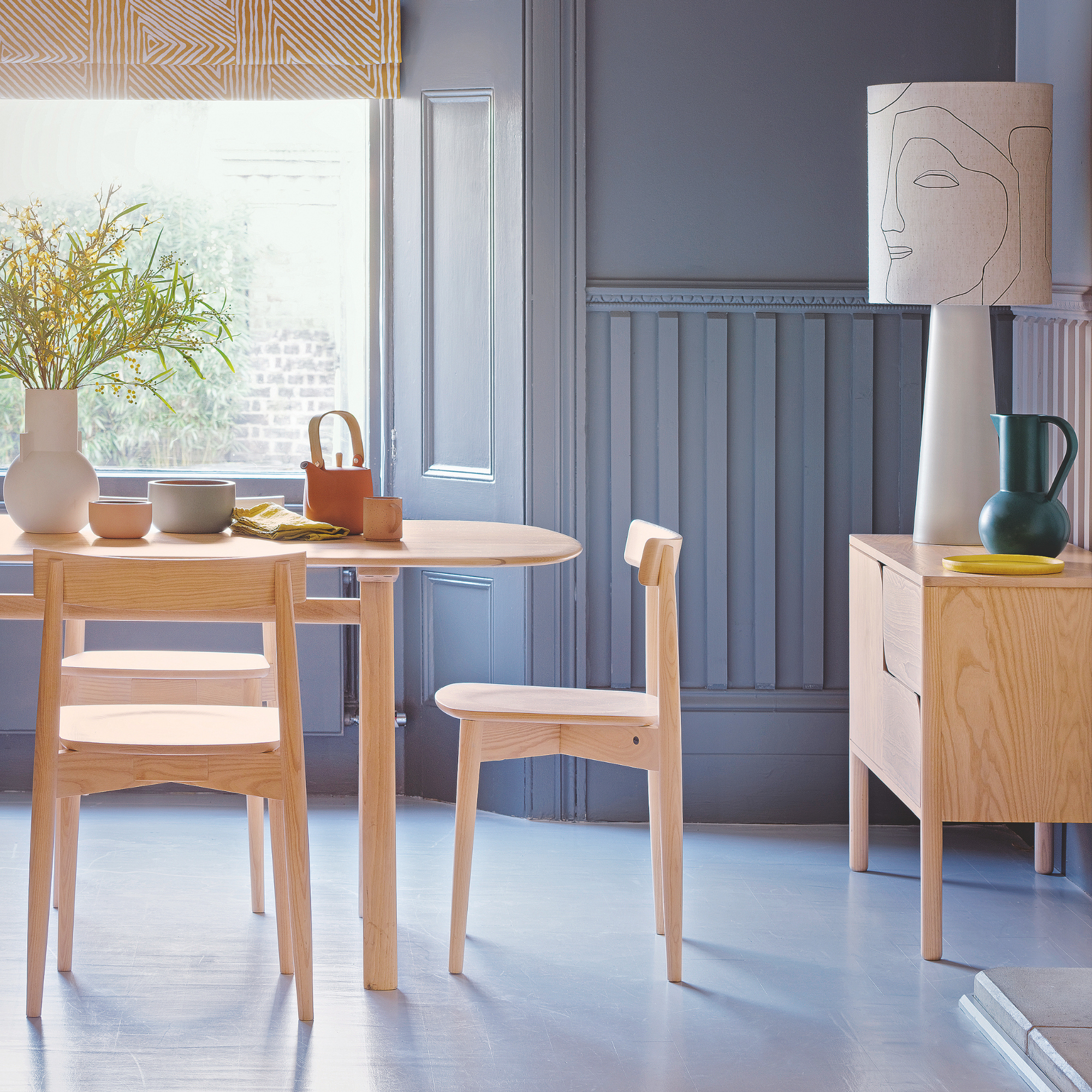 Blueberry is the ‘it’ blue this spring - but these are the 3 colours you should never pair with it, according to experts
Blueberry is the ‘it’ blue this spring - but these are the 3 colours you should never pair with it, according to expertsAvoid overpowering your space by avoiding these three bold colours
By Kezia Reynolds

